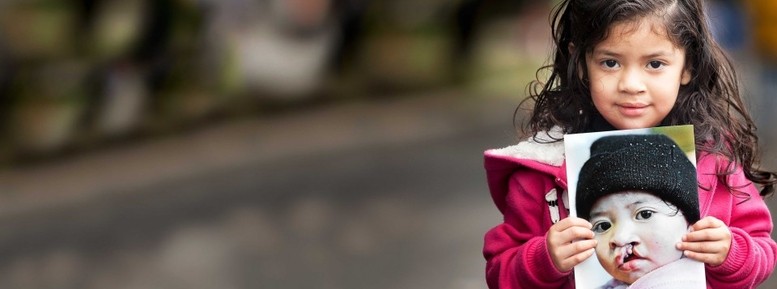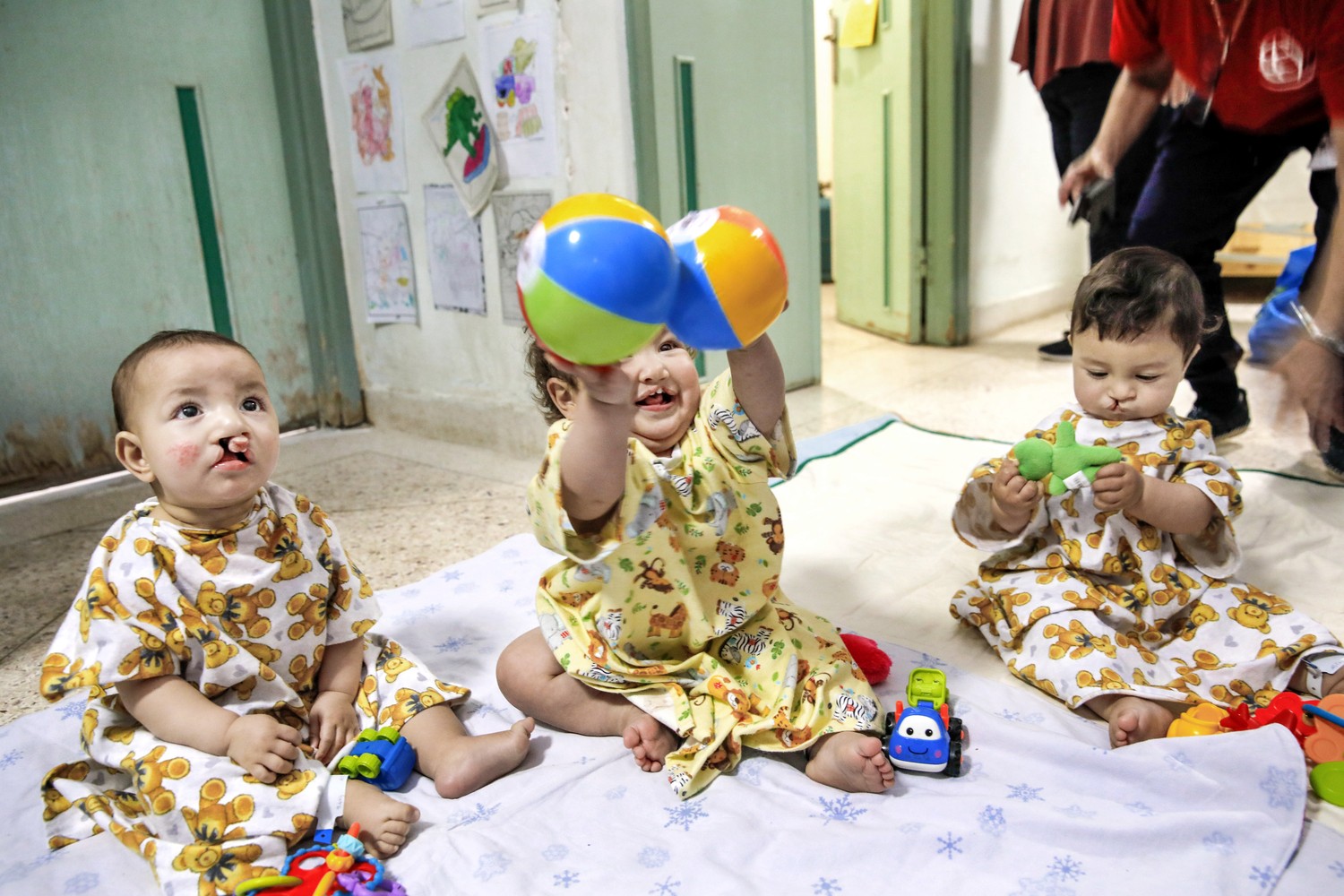
Our promise of improving health and dignity during the COVID-19 pandemic endures. We're helping front-line health workers stay safe, nourished and empowered to better serve their patients by providing life-saving supplies and equipment, as well as remote training to bolster their response. We’re also providing nutritional assistance, hygiene kits and virtual health services to support people and their health needs so they can thrive. If you can, when you can, help us keep our promise to care for children and create hope for tomorrow.
A hallmark of Operation Smile medical missions and care centers is undoubtedly their bustling atmosphere – full of energy and full of people gathered to ensure that our patients get the cleft surgery and care that they need and deserve.
Volunteer medical professionals work side-by-side, quite literally shoulder-to-shoulder, conducting comprehensive health evaluations for scores of patients during a screening day. Those patients and their families, often numbering in the hundreds on large-scale international missions, gather and share stories of perseverance and hope. Care centers’ waiting rooms are filled with the sounds of children playing as they await their consultations.
But the COVID-19 pandemic brought these familiar and vivacious sights and sounds to an abrupt, albeit temporary, end.
In March 2020, Operation Smile made the decision to suspend international travel for medical volunteers and postpone medical missions and care delivery at care centers.
While these decisions were made with the safety of patients, volunteers, staff, their families and communities as the top priority, the postponements have left waiting more than 10,000 patients scheduled to receive treatment.
The organization quickly pivoted to address many of the pandemic’s novel challenges, such as providing hospitals around the world donations of personal protective equipment (PPE) and providing patients and their communities with food and hygiene supplies as lockdowns stifled livelihoods.
Yet, there is hope on the horizon. Though care delivery looks, sounds and feels much different than before, Operation Smile has resumed providing cleft surgeries in Vietnam, Italy and China. In Morocco and Nicaragua, care centers are once again offering patients in-person care like dentistry, speech therapy and psychosocial care.
The resumption of in-person care offers a glimpse into how medical programs will be conducted in the COVID-19 era, informing the organization on how to approach treating patients as conditions improve from country to country.
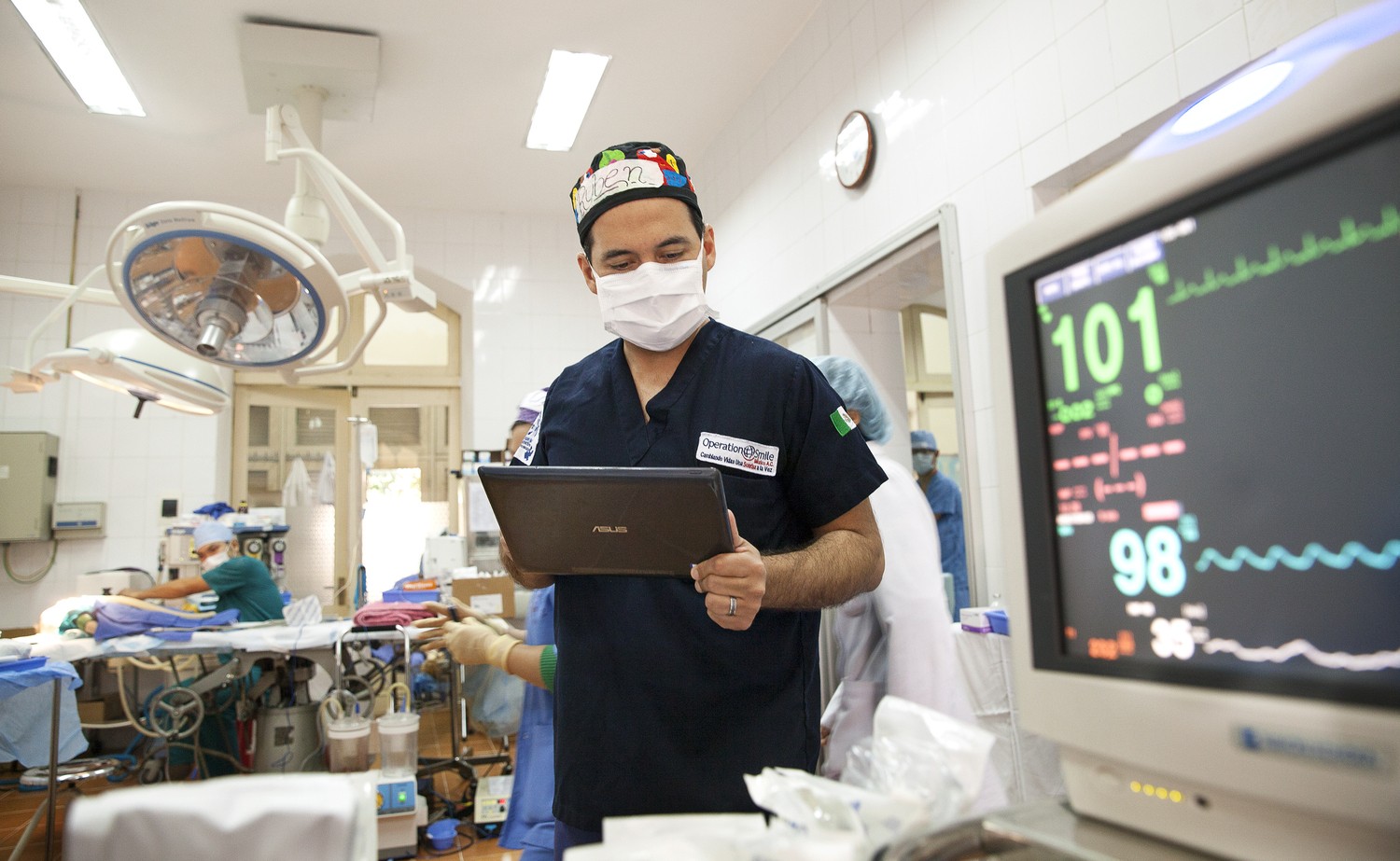
Dr. Ruben Ayala, Operation Smile’s chief medical officer, said that while he stands behind the decision to postpone activity, it’s important to consider the long-term consequences that untreated cleft conditions can cause.
“The choice to not provide care to people, either surgery or comprehensive care, is not a benign one. Children are still suffering because of it,” Ruben said. “The reality is that the longer we wait, the longer more children are going to have difficulty eating, speaking and there will be issues in their growth and development.
“You’re going to have to weigh the pros and cons. We need to step back from the all-or-nothing approach to one that is based on the knowledge that is constantly evolving and the awareness.”
In May 2020, the first Operation Smile country to resume providing surgery was Vietnam, a country that imposed strict lockdown measures at the onset of COVID-19’s spread in neighboring China. As a result, the country avoided a major outbreak. When the decision was made to host a medical mission conducted entirely of Vietnamese volunteers, there were only around 300 confirmed COVID-19 cases and zero deaths.
Viet Nguyen, the chief representative for Operation Smile Vietnam, said that volunteers are closely following both Operation Smile and health ministry guidelines to reduce the risk of spreading the virus during missions, including mask-wearing, temperature screenings, socially distanced waiting areas and increased sanitation measures.
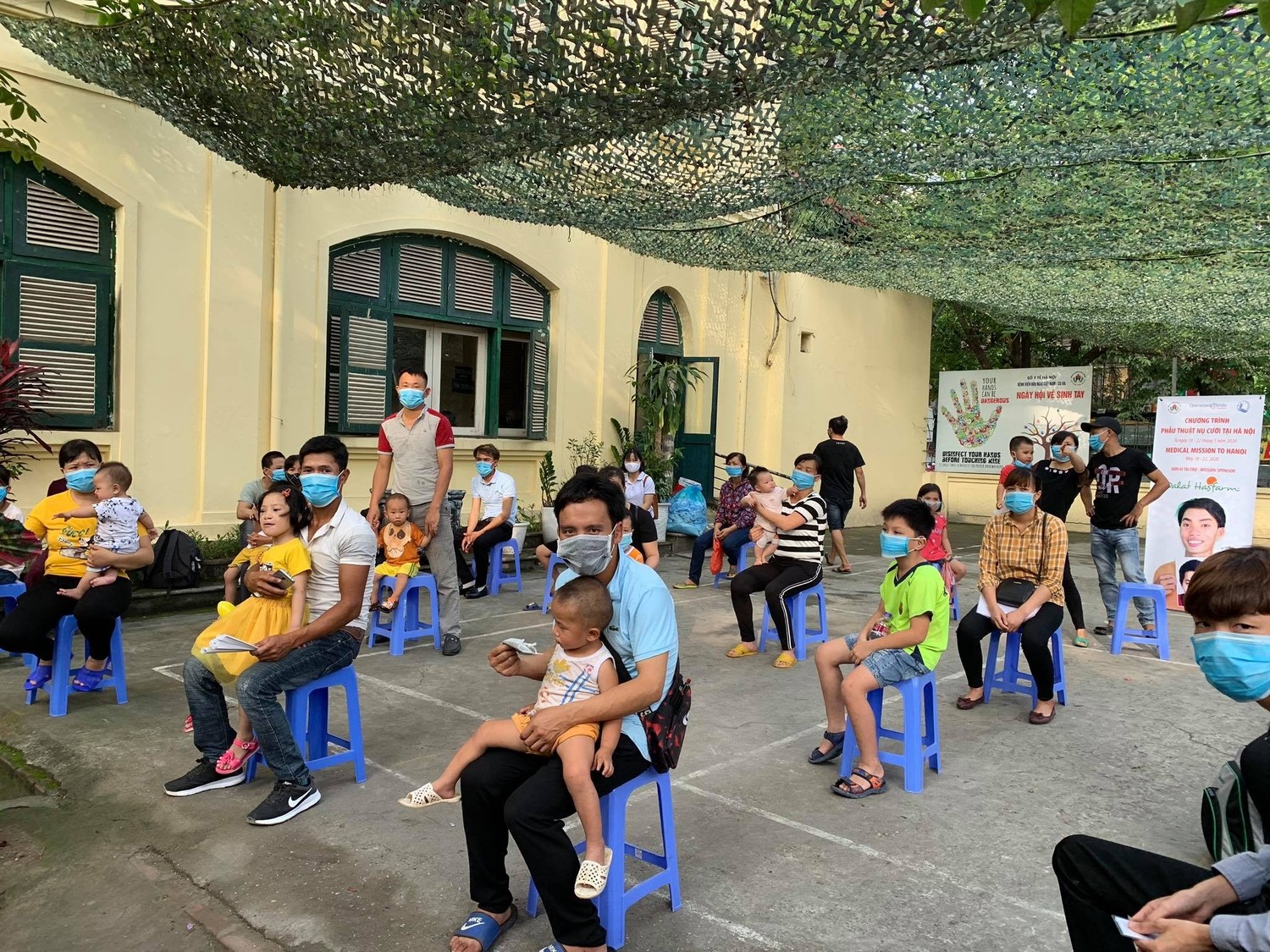
“In the past at missions, we would gather about 100 patients and their families; there would be a few hundred of them at the hospital. Right now, we’re only able to bring in about 10 to 20 patients to the hospital each day,” Viet said. “We have to do the screening process as usual. It takes more time, but actually that's a very good way for us to ensure the safety of our patients, families and also our medical volunteers.”
From May to September 2020, more than 500 patients have received cleft surgery at six Operation Smile Vietnam local missions.
“It’s positive progress,” Viet said. “We feel safe. We strictly follow the guidelines, and we’re making appropriate decisions. We’re actually doing a great collaboration with our in-country partners and also with the headquarters of Operation Smile in the U.S., and we did it at the right time.”
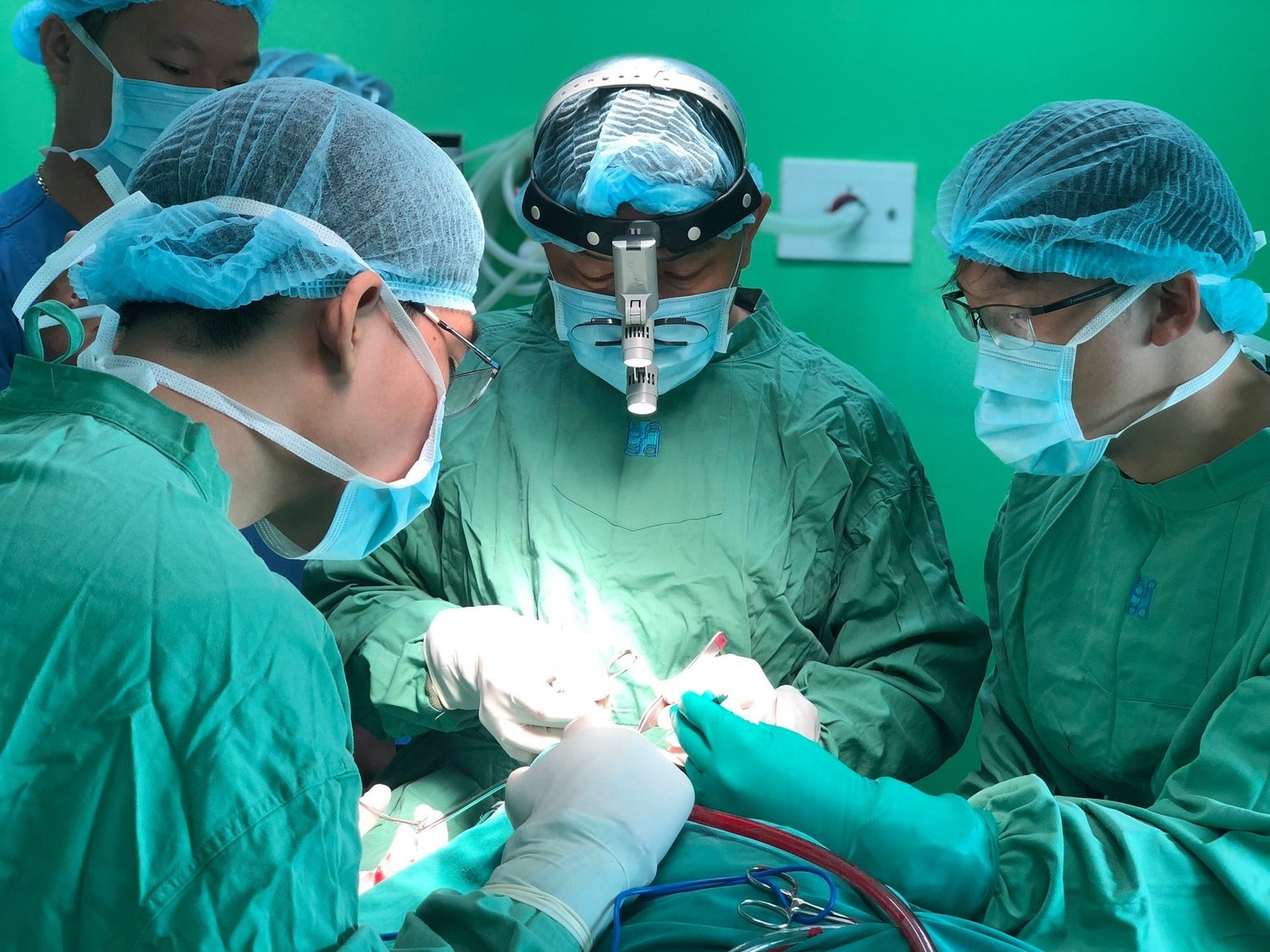
In Italy, a country that was hard-hit by COVID-19, Operation Smile has also resumed providing surgery and cleft care services at its three Smile House locations in Rome, Milan and Vicenza.
Dr. Domenico Scopelliti, a longtime Operation Smile volunteer cleft surgeon and the director of Smile House Rome, explained that the Italian context differs greatly from that of Vietnam.
“The project here is how to face a journey before the time of a vaccine,” Domenico said. “I very often use terms of navigation, because when we describe our journey, imagine that we’re going from point A to point B and the COVID pandemic moved our boat to point C. The route is totally different – we need to project another route.”
Smile Houses are creating physical pathways that are designed to drastically reduce the risk of the virus entering their facilities, alongside bolstered PPE that includes ventilated surgical helmets.
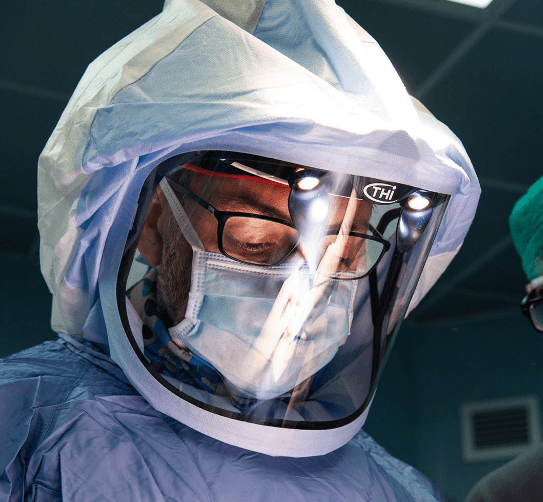
Anyone entering a Smile House must have tested negative for COVID-19 within 48 hours of their visit. They then change out of their clothes, place them into a seal bag, and into PPE garments provided by the center. Entrances and exits are separated, and medical staff change their PPE and fully decontaminate the operating rooms between each patient. Only one parent can accompany a child into the facility, and mask-wearing and physical distancing are practiced.
“Timely surgery is very important, because if you do the right job at the right time, you reduce the risk of a patient having functional consequences,” Domenico said. “It’s important to respect that time because if we promise to operate all the newborn kids in the first years of age, we have to maintain our promise.”
In August 2020, Operation Smile also hosted its first two local missions in China. Though the pandemic originated in Wuhan in the country’s east in late 2019, the mission sites of Meigu and Zhaotong are in China’s western region, which was spared the brunt of the disease due to strict lockdowns. Sixty-two patients received surgery at the missions, and four more missions are planned through the end of 2020.
As teams around the world are working within the guidelines of their ministries of health to continue serving patients through telehealth services and nutritional support, our care centers in Nicaragua and Morocco were cleared to reopen their doors to patients for nonsurgical services in July 2020.
While the Moroccan team hopes to be able to resume cleft, bone graft and orthognathic surgeries before the end of 2020, it’s been able to provide most of the other services it offers to help patients live more fulfilling lives. Each of Morocco’s centers in Casablanca, Oujda and El Jadida are offering pre-surgical screenings, post-operative care, dental and orthodontic care, psychological and speech therapy workshops and nutrition support.
In the early stages of the pandemic, the Operation Smile Nicaragua team recognized the need to stay connected with its patients by offering them virtual consultations for speech therapy and psychological counseling. Today, they continue to offer virtual care alongside in-person services like speech therapy, psychology, plastic surgery, pediatrics, nutrition, periodontics, odontology and nursing, averaging about 130 consultations per week.
According to Ruben, though COVID-19 will continue to pose challenges for the foreseeable future, those obstacles are surmountable.
“There’s a whole world ahead of challenges, but if we focus on that commitment to children, we will unavoidably become really innovative in how we address the challenge,” Ruben said. “We look forward to partnering with other organizations, to partner with governments, to partner with private entities, civil society and especially with the communities and the families and, most importantly, the patients to see a way forward and an opportunity for all.”
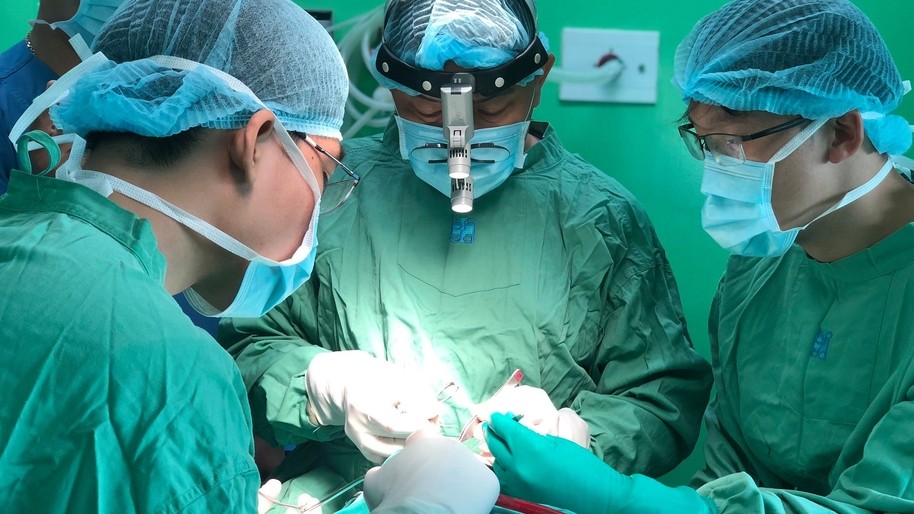
Latest Stories

Mateo's Journey

Meet Isaac

